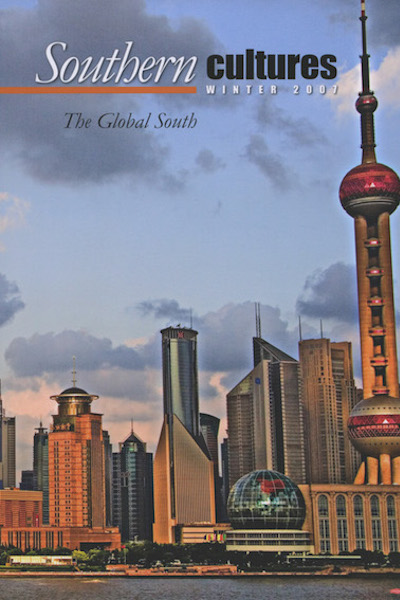“No other country has become home to so many immigrants, and to so many different kinds of immigrants.”
As the essays in this issue of Southern Cultures confirm, it is now old news to point to the changing demographic face of the South. We all know that immigration is transforming the region, that newcomers—new southerners, to be sure, but also new kinds of southerners—are introducing novel ways of speaking, of eating, of worshiping. These cultural innovations bring new diversity to a place long noted for its starkly black and white biracialism, its ethnically homogenous Anglo-Celtic whites, and its Christ-haunted Protestantism. Of course, as any number of Chinese in Mississippi, French-speaking Cajuns in Louisiana, Jews in South Carolina, German Lutherans in Texas, and Catholics in Maryland will tell us, the South has always housed more cultural diversity than the above generalizations allow, and it is much too simple to say that southerners are entirely unfamiliar with the voluntary and involuntary flow of people into the region from near and distant shores. Yet these generalizations nonetheless hold much truth: even today, the ancestry of most southerners points to Africa or the British Isles. Still, for most of its history, Dixie lagged way behind the rest of the country in terms of attracting immigrants and thus has far less experience with such perennial “American” themes as ethnic and religious nativism, assimilation, and pluralism.


